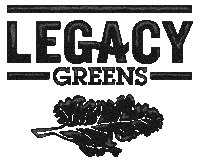Gardening Tips for Beginners: An Interview with Angie from Fertile Ground Farms

Gardening Tips for Beginners: An Interview with Angie Koch from Fertile Ground Farm
Blog Contributor: Sarah Rombough
It is April which means spring has finally returned. The earth is starting to come alive again, which means growing season is here. This probably also means that a lot of folks are thinking about starting a garden for the first time. To make life a little easier for you we talked to Angie from one of our suppliers, Fertile Ground Farm, to talk about gardening and growing your own food for beginners.
For first time gardeners, some of the easier veggies to grow include tomatoes, perennial herbs, basil, zucchini, cucumbers, beans and kale. All of these can be planted at the same time (just after the last frost) and will generally keep producing right through until frost returns in the fall (kale will keep going even into the snow!) Peas are straight-forward and can be seeded as soon as the ground is defrosted in spring. Plenty of other veggies are easy if you know a few basic things about their preferences and growth habits. For example: sow seeds early - April or early May, as soon as the soil is thoroughly defrosted and not too soggy. They'll grow quickly & produce peas until it gets hot. Lettuce also doesn't love the heat, and it will usually bolt (turn bitter and start sending up a flower stalk) after it's been mature for about 2 weeks. Cilantro and dill are the same. Plan to just keep planting a fresh supply every 2-3 weeks from early May until early August if you want to have a fresh, tasty supply all season long.

Honestly, one of the things I love most about farming is how the lessons just keep coming. Every season is different, things that work perfectly one year are a disaster the next. My wish is less about what I'd known earlier and more about continuing to pay attention so I continue to learn more.
3. Would you recommend starting from seed or from seedlings if you are starting a garden for the first time?
For your first time, it may be fun to try your own seedlings (and you should!) but leave a bit of a budget to buy seedlings from a farm or garden centre in case they don't turn out as well as you'd hoped. Choosing whether to plant seeds or seedlings in your garden really depends on what you want to grow. Some veggies don't have a long enough growing season here to make it from seed to harvest without some extra growing time as seedlings indoors.
Direct seed: peas, beans, carrots, beets, baby salad, arugula, cilantro, dill, radish
Transplant seedlings: tomatoes, peppers, eggplant, lettuce heads, perennial herbs, basil
Either way: zucchini, cucumbers, kale

The time of year to start really depends on what you want to grow. The most important thing to be aware of is whether your veggies are frost hardy or tender (ie. they can withstand frost, or frost will kill them). For frost hardy crops, late April or early May is a good time to get started - so long as your garden soil is defrosted and not too soggy. Late May is generally considered safe as a post-frost date (though we do have frost sometimes in early June!). Many veggies can continue to be grown throughout the season. At our farm, we start garden planting late April and keep planting new things every single week until mid-August. An abundant garden isn't just planted once on the May long weekend! As things die, bolt or stop producing, keep planting new things into the spaces that open up.
5. What plants would you recommend for someone growing with a small space such as simple pots on a balcony?
If your garden space is small, focus on things you use often and want super-fresh. Pots are great for herbs, "container-friendly" (ie. dwarf) varieties of tomatoes and greens. It's really important that you not let the pots dry out - it happens fast if they're in a hot, sunny spot!
I love the seasonality of my life, the satisfying nature of many gardening tasks (e.g. how awesome a freshly-weeded bed looks) and the ever-changing rotation of fresh foods that inspire my meals. Just when I'm starting to get sick of the weather… a task... a vegetable... it changes! I love how much time I get to spend outdoors, and how it trains me to be observant and tuned into both big patterns and tiny details. I find it deeply satisfying to feed people - including myself - from what I've grown.
Read more gardening resources at Fertile Ground's website: https://www.fertilegroundcsa.com/gardening-resources



